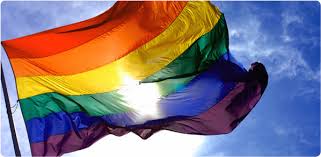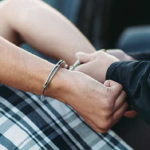Defendants in the LGBTQ Community Face Unique Challenges in the Court System
Attorneys who are experienced with defending clients in the LGBTQ community who face domestic violence charges must have an understanding of the unique challenges they face in court.

Domestic violence is an issue for the LGBTQ community.
Domestic or relationship violence is a pattern of behavior where one person attempts to control another person who is close to them using power and control. This control can include physical, emotional, sexual, spiritual, or economic abuse. Defendants in the LGBTQ community face several challenges, including discrimination in court, and it takes an empathetic, experienced domestic violence defense attorney to help.
If you are facing domestic abuse charges, you will need the expert advice and assistance of a highly experienced Domestic Violence Attorney in Michigan. Michigan has stringent domestic violence laws, and you need to get help as soon as possible.
What are examples of power and control tactics?
Relationship violence in the LGBTQ community has unique concerns. There can be a fear that the abuser will “out” them, causing difficulty and possible danger from people who are not supportive. There are also fears that the abused person somehow “had it coming” or even enjoys it. There are issues of self-blame and doubt — had I been “normal,” this never would have happened. Lastly, the abuser may say that a homophobic society will never believe the abused person.
Is there an advantage to hiring a domestic violence attorney familiar with the LGBTQ community?
When an individual from the LGBTQ community faces domestic violence charges, having a lawyer familiar with the unique challenges of this group is crucial for several reasons. Firstly, such a lawyer brings an informed understanding of the complex dynamics often present in LGBTQ relationships. This expertise is essential in accurately representing the case’s context, as these dynamics can significantly differ from heterosexual relationships. For example, the threat of ‘outing’ a partner’s sexual orientation or gender identity can be a unique aspect of abuse in LGBTQ relationships.
Moreover, a lawyer with experience in LGBTQ issues is more adept at navigating the biases and misunderstandings that might arise in the legal system regarding LGBTQ relationships. They can effectively challenge stereotypes and misconceptions that could unfairly influence the case’s outcome. Additionally, this attorney can provide a safe and understanding environment for their client, who might otherwise face discrimination or lack of empathy in the legal process. This level of comfort is crucial for the client to openly discuss the details of their case, which is vital for effective legal representation.
Furthermore, an attorney knowledgeable about the specific legal challenges and barriers the LGBTQ community faces can better advocate for their client’s rights. This includes addressing issues related to the legal recognition of LGBTQ relationships, which can impact protective orders and other legal proceedings in domestic violence cases. Lastly, such a lawyer is likely to have connections to supportive resources and networks tailored to the LGBTQ community, which can be invaluable in providing holistic support to the client beyond the legal aspects of the case.
In essence, a lawyer with a deep understanding of and experience with the LGBTQ community can offer a more nuanced and effective defense for someone facing domestic violence charges, ensuring that their specific needs and challenges are adequately addressed.

What unique challenges does domestic violence present in the LGBTQ community?
Domestic violence in the LGBTQ community presents unique challenges that can be distinct from those in heterosexual relationships. These challenges stem from both the nature of the relationships and broader societal factors:
- Lack of Recognition: Domestic violence in LGBTQ relationships may not always be recognized or taken as seriously by society, law enforcement, or even within the community itself. This can lead to underreporting and a lack of support for victims.
- Threats of ‘Outing’: Abusers may use the threat of outing a partner’s sexual orientation or gender identity as a form of control, especially if the victim is not openly LGBTQ.
- Limited Resources: There are fewer resources available that are specifically designed for LGBTQ victims of domestic violence. Mainstream services may lack understanding of their unique needs or be perceived as unwelcoming or unsafe.
- Legal and Institutional Barriers: Discrimination in legal and institutional settings can make it harder for LGBTQ individuals to seek help. This includes challenges in the legal recognition of their relationships, which can affect protective orders, custody, and other legal matters.
- Cultural and Social Isolation: LGBTQ individuals may already face social or family exclusion. The fear of further isolation can deter them from seeking help or leaving abusive relationships.
- Intersectional Identities: LGBTQ individuals who also belong to other marginalized groups (e.g., racial minorities, disabled, undocumented) may face compounded forms of discrimination and barriers to seeking help.
- Misconceptions About Gender Roles: There can be misconceptions about domestic violence being mutual or less serious in same-sex relationships, especially among men, due to stereotypes about gender and aggression.
- Healthcare Discrimination: LGBTQ individuals might face discrimination in healthcare settings, which can be a barrier to seeking treatment for injuries related to domestic violence.
- Mental Health Stigma: Mental health challenges arising from both domestic violence and societal discrimination against LGBTQ individuals are often compounded by stigma, making it challenging to seek mental health support.
- Limited Research and Data: There is less research and data on domestic violence in LGBTQ relationships, which can hinder the development of appropriate services and support systems.
Addressing these challenges requires a more nuanced understanding of domestic violence in the context of LGBTQ relationships and a concerted effort to provide inclusive, informed, and accessible support services.
Are you a victim of domestic abuse?
There are various ways a person can be a victim of domestic assault or abuse. Have you been threatened? Has “outing” you been threatened? Have you been kept from seeing family and friends? Have your telephone calls or text messages been monitored? Have you been forced to do a sexual act that you did not want to do? Have you been told you are not a “real” man or woman? If you have experienced any of these things, you have likely been the victim of abuse.
Some resources and agencies can help. In many cases, a victim of domestic violence in the LGBTQ community may desire to hire a private attorney who can help guide them through the legal process and help ensure their legal rights are protected. The Domestic Violence Attorneys in Michigan with LEWIS & DICKSTEIN, P.L.L.C. will help protect LGBTQ clients and advocate for them when no one else can or will.
If you are facing domestic violence charges, what should you do?
There is a need for domestic violence laws. However, domestic violence crimes are subject to abuse, and false allegations run rampant. Often, police officers will get called in the heat of an argument, and parties regret having made that decision when tempers have cooled down. Once 911 is dialed, it is too late to take it back. If you have been arrested for domestic violence, the first thing you should do is not be embarrassed or afraid to contact a domestic abuse attorney. The attorneys with LEWIS & DICKSTEIN, P.L.L.C. have extensive experience helping those in the LGBTQ community.

Why Hire LEWIS & DICKSTEIN, P.L.L.C. to Defend You?
Michigan has a lot of attorneys who practice criminal law but are insensitive to the issues of LGBTQ communities. The law firm of LEWIS & DICKSTEIN, P.L.L.C. is not among those. We are premier domestic abuse attorneys. It is essential that you have attorneys understand the unique issues an LGBTQ person faces and can guide you every step of the way to a fair and just resolution. If necessary, we have access to psychological and medical experts who can assist in preparing the best possible defense available. It is crucial to LEWIS & DICKSTEIN, P.L.L.C. that our clients be given the very best representation available. Our Domestic Violence Attorneys in Michigan are open-minded, cutting-edge, and well-respected. Our firm has a reputation for success and is not afraid to win. What can you expect from our staff and attorneys when defending and protecting you?
- In-depth understanding of LGBTQ-specific issues and sensitivities.
- Experience in handling domestic violence cases within the LGBTQ community.
- Strong advocacy and litigation skills.
- Knowledge of state and federal laws pertaining to domestic violence and LGBTQ rights.
- Empathy and ability to build trust with clients.
- Discretion and respect for client confidentiality.
- Cultural competency and inclusiveness.
- Commitment to fighting discrimination and bias in the legal process.
- Excellent communication skills, both in and out of the courtroom.
- Aggressive, fearless, uncompromising, and tenacious representation.
Our lawyers offer a free consultation. We will take the time to talk with you, answer your questions, and work with you to develop a winning strategy.
Call us today at (248) 263-6800 for a free consultation or complete an online Request for Assistance Form. We will contact you promptly and find a way to help you.












